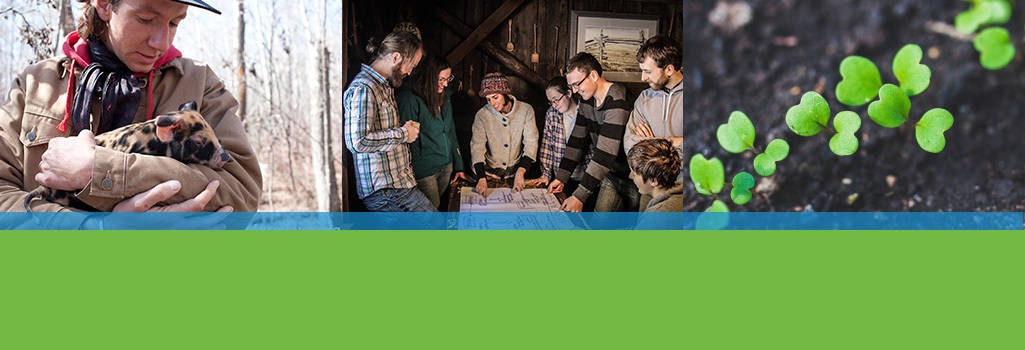NFU calls on Canada to support study of Agroecology for Food Security and Nutrition
The following is the text of the letter sent on April 26, 2017.
Dear Minister MacAulay and Members of the Permanent Mission of Canada to the FAO Agencies:
We are writing to you on behalf of the National Farmers Union of Canada with regard to a very important issue that is currently being discussed at the United Nations Committee on World Food Security (CFS): the proposal for the CFS to request the High Level Panel of Experts to prepare a report on “Agroecology for Food Security and Nutrition” in 2019.
This proposal was made by civil society organisations in November 2016. Thereafter, in November and December 2016, the CFS undertook a ranking exercise of all proposals amongst CFS members and participants. Out of all the proposed themes for a High Level Panel of Experts (HLPE) report, agroecology came first in the ranking, having received the most support.
During the CFS Multi-Year Programme of Work (MYPoW) Open Ended Working Group (OEWG) meeting, which took place on February 6, 2017, the proposal received a strong backing by many of the CFS Members States and other CFS participants, including the three Rome-based agencies (FAO, IFAD and WFP), thus reaffirming the result of the ranking exercise.
However, on that same occasion, some countries, along with the private sector, expressed their doubts regarding this proposal. One country even stated that this was a “red line” for them and would therefore object to the selection of agroecology. They suggested the OEWG should define a different, broader theme.
At the end of March, the Chair of the MYPoW OEWG proposed two options to be discussed at the CFS on May 2, 2017. The first option presented by the Chair is the original proposal entitled “Agroecology for Food Security and Nutrition”, which had come top in the ranking exercise. The second option would be a more general theme entitled “Innovative approaches to food and agricultural systems to improve food security and nutrition.”
Given this situation, we would like to draw your attention to this matter and request the following:
1) Following the FAO-led global and regional processes over the last few years, it is clear that agroecology is at the heart of a model of sustainable agriculture that is still practised and promoted by small-scale food producers as the most viable solution to food insecurity and climate change.
2) FAO global and regional conferences and symposiums maintained a comprehensive approach to agroecology. Similarly, we believe that this would be the most favourable approach for the HLPE report to take, ensuring that the theme remains as presented, following the demands of global, regional and national organisations of small-scale food producers who participate in the CFS through the CSM.
3) In this regard, we appeal to you to support the option that keeps the integrity of the original proposal intact. We believe that it is high time that all CFS members and participants—building on an HLPE report—hold a conversation on agroecology, which is highly pertinent for hundreds of millions of small-scale food producers, and more broadly, for the progressive realisation of the right to adequate food.
4) We believe that it is unacceptable that a small number of actors are trying to hamper a discussion on a concept and practice that is of high relevance for small-scale food production and food security overall. Moreover, it would not be wise to join or subordinate agroecology to other concepts and practices that respond to other rationales or opposing interests and pursue diverging objectives, such as industrial agricultural intensification, the expansion of export-driven monocultures or the excessive use of chemical inputs in food production.
5) We underline that agroecology provides win-win solutions, increased productivity, restoration, and a more efficient use of natural resources. Agroecological systems are more capable of overcoming the critical problems currently faced by the world food system, because they provide solutions that can be applied to different contexts by combining local knowledge, praxis and innovation with scientific knowledge, thus guaranteeing the sustainable use of natural resources.
6) Over the last few decades, a huge amount of experience and knowledge has been generated, as well as research and analysis by academics, producers and governmental and intergovernmental organisations, which an HLPE report can bring to the fore through an exhaustive and up-to-date analysis.
7) The HLPE report will inform an in-depth debate and will be used as a basis for a CFS policy convergence process that concludes in CFS policy recommendations in 2019.
We consider this proposal to be of great relevance for Canada, not only because of the important development and research contributions that Canada has made to sustainable agriculture in many parts of the world, but also because of the urgent need for work on sustainable agriculture and agroecological systems here in Canada. Agricultural production in Canada will need to change in order to meet the climate change commitments that were undertaken in the Paris Agreement. Farmers, researchers, policy makers and other actors in agriculture would benefit a great deal from the knowledge and analysis that the High Level Panel of Experts report on “Agroecology for Food Security and Nutrition” will generate.
We sincerely thank you for paying attention to our reflections, as these are the outcome of a discussion with organisations that have worked on agroecology for several decades at all levels.
We hope to count on your backing for the proposal made at the CFS, in line with the support that you have granted within the framework of the FAO at the regional and global level.
Best Regards,
Jan Slomp
President, National Farmers Union
Further reading
